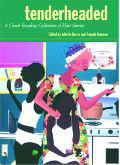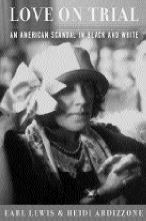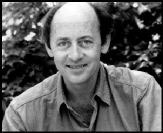BLACK WOMEN and their hair: It’s a loaded feminine topic, say Juliette Harris and Pamela Johnson (respectively editor of the International Review of African-American Art and a columnist at Essence magazine) in Tenderheaded, their wise and joyous anthology. All their sisters are “tenderheaded,” or sensitive about their hair one way or another. Some could never stand the heat of a curling iron, while others feel their scalps sting at the mere sight of a fine-tooth comb. Others, reading W.E.B. Du Bois’ comment that a woman “black or brown and crowned in curled mists” is “the most beautiful thing on earth,” pat their own misty crowns and mutter, “mailman’s hair: every knot’s got its own route.”
Tenderheaded: A Comb-Bending Collection of Hair Stories
edited by Juliette Harris and Pamela Johnson (Pocket Books, $25.95)
Reading Tenderheaded feels a little like talking with your girlfriends, grown daughters, or favorite aunts. Now and then a simpatico male drops by—maybe Peter Harris, gloating at finally having learned how to box-braid his 6-year-old daughter’s curls, or maybe Henry Louis Gates musing on the “kitchen,” which isn’t just the place at home where your mother and her sisters tended one another’s hair but the place at the nape of the neck that’s “Unassimilably African” because, says Gates, nothing can “de-kink” it.
Kinks can be a trial in a world where the fluid, silken tress is beauty’s trademark. From the ’60s through the ’80s, if a black woman straightened her hair or wore extensions or a weave, she was routinely accused of hating herself or insulting her race—the righteous and the rappers loved to dis fake or processed hair. Having naturally straight “good hair” has never been a picnic, either. Even if the “lucky” woman’s friends weren’t resentful, she missed out on the intimacy and catharsis of hair-wailing sessions, and if she decided on a short style, she was said to have thrown her luck away.
OPINIONS ARE STILL divided, and everyone in these pages has a different one, whether the writer is Alice Walker or the great-great-granddaughter of Madam C.J. Walker, America’s first black woman millionaire, whose hair-care system gave dignified employment to thousands of impoverished women in Jim Crow times. Angela Davis discusses the Afro that made her a media icon, and bell hooks argues that hair straightening is not about wanting to be white but about longing to grow up: The practice marks the graduation from braided girlhood into womanhood. Art historian Judith Wilson links the pompadours, hair extensions, turbans, and long fingernails popular in some American communities to African aesthetic traditions in which the self is ritually extended through deliberate overabundance and artifice in bodily decoration. In “If You Let Me Make Love to You, Then Why Can’t I Touch Your Hair?” Cherilyn Wright offers the hilarious survey she took among her friends, male and female, about how they handle lovemaking when a hot, damp breath can snap a woman’s expensively sleekened hairstyle right back into its original “b-b’s.”
The book has a marvelous array of photographs, from archive-quality portraits of 19th-century toddlers to Topsy cartoons and Aunt Jemima ads to Ugandan foreign minister Elizabeth Bagaaya in splendid basket braids. A New York City matron wears a Muslim head wrap, and Grace Jones a gorgeous fade. Whoopi Goldberg sports a spoofy yard-long platinum wig.
Best of all, Tenderheaded brings to life the millions of women who give each other their touch and their attention (if sometimes also heartaches or a headache) through the intimate rituals of washing, combing, trimming, oiling, braiding, pressing, winding, wrapping—caring for—their hair.








